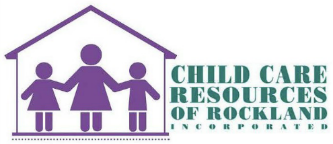The past several months has resulted in significant changes to everyday lives. We have had to adapt to shifts in normal routine, changes in academic instruction, and separation from family and friends. These changes have had an extreme impact on many of us, especially young children.
In young children, increased stress may present as tantrums, defiance, difficultly transitioning, irritability, and clinging to caregivers and loved ones. Children may be experiencing a variety of big emotions: fear, confusion, anger, anxiety, and sadness, all which may influence the development of or increase of challenging behaviors. By using a variety of behavior strategies, parents and caregivers can better manage challenging behaviors and meet the individual needs of each child.
Setting realistic expectations for yourself and children is key while navigating these uncharted waters, especially as we juggle more roles and responsibilities. Parents and caregivers play an important role in helping children regulate their big emotions, so it is important to be realistic when setting goals and daily expectations.
Being present and validating a child’s feelings is a powerful way to let the child know what they’re feeling is okay and that you are there to help assist them in managing their emotions. Providing children with validating statements such as “I know it’s tough to be away from grandma” or “I can see that you are upset and that’s okay” helps children communicate their feelings using acceptable language. Children, just like adults, need time to cool down after experiencing intense emotions. It is important to identify an area where children can go to calm down when they are feeling overwhelmed or experiencing strong emotions.
As human beings our tendency is to be “creatures of habit.” With the outbreak of COVID-19 schedules have been completely disrupted. Parents as well as children benefit from consistency and routines; it provides a sense of control and predictability. In light of uncertainty, it’s natural for young children to feel anxious and exhibit challenging behaviors. By trying to regain a sense of predictability and “normalcy,” it’s important to take time to reflect and see the world through a child’s perspective. By maintaining consistent daily routines and providing consistent repetitive language, children develop a sense of what is happening and when. This consistent structure helps to reduce anxiety, provide a sense of control and security.
Resources:
Kolsky, R., Zisser, A., & Heier, J. (2020, June 23). Managing Disruptive Behavior During COVID-19. Children’s Hospital of Philadelphia. https://www.chop.edu/news/health-tip/managing-disruptive-behaviors-in-the-time-of-covid-19#:~:text=Create%20a%20general%20schedule%20for,nutrition%2C%20hydration%20and%20physical%20activity
Rasmussen, S., & Budworth, M. (2020, March 17). Dealing with Behavioral Challenges from Disrupted Routines. Encompass. Children. Families. Communities. https://www.encompassnw.org/dealing-with-behavioral-challenges-from-disrupted-routines/ Pantor, R., & Schulman, R. (2020). Managing Children’s Challenging Behaviors in the Midst of Coronavirus (COVID-19): Help for Parents. Behavior Therapy Associates. https://behaviortherapyassociates.com/blog/social-emotional-learning/managing-childrens-behavior-during-coronavirus/
This article appeared in our October-December 2020 Newsletter



